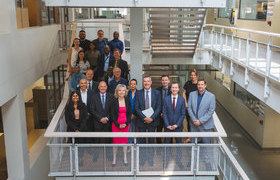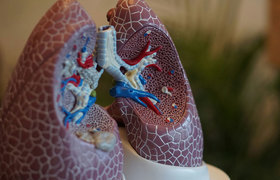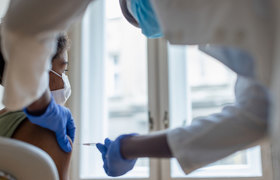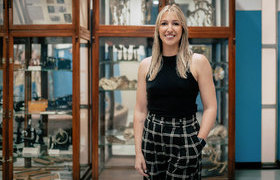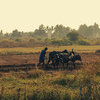5 questions with Mohlopheni Jackson Marakalala
29 October 2018 | Story Lisa Boonzaier. Photo Lerato Mokhethi. Read time 4 min..jpg)
Dr Mohlopheni Jackson Marakalala has his roots in rural Limpopo, South Africa, where he completed his BSc and honours degrees. After finishing his PhD at UCT, he completed a fellowship at Harvard before returning to his home country. Now a senior lecturer and group leader in UCT’s Division of Immunology, he hopes to help combat the infectious diseases most prevalent in sub-Saharan Africa.
1. What is the focus of your research?
My research seeks to identify factors that drive the progression of tuberculosis (TB) by studying lung surgical tissues called granulomas. We aim to develop diagnostics and therapies that limit the disease’s progression and augment current treatments. We also study the mechanisms used by TB to survive our immune systems.
Growing up during the harshest times of HIV/AIDS and TB in sub-Saharan Africa, I wanted to choose the research field that would allow me to help eradicate these diseases.
2. Why are you interested in this field?
Growing up during the harshest times of HIV/AIDS and TB in sub-Saharan Africa, I wanted to choose the research field that would allow me to help eradicate these diseases. TB remains a leading global health challenge and we direly need better diagnostics and treatment strategies. I hope to fill some of these gaps. More importantly, being an African scientist, I have a great interest working on solutions relevant to local health challenges.
3. What have been the highlights of your research career so far?
Receiving the Bronte Stewart award for the most meritorious doctoral thesis submitted by a PhD student at UCT in the presence of my mother and sister. Attending the graduation of my first postgraduate students; I believe that the success of a good teacher is measured through progress of students. Being hosted by Queen Elizabeth II and chatting with her about my work and its global impact. Publishing my research in Nature Medicine.
4. What is the most important role science can play in developing countries, like South Africa?
I believe investing in science, technology, engineering, mathematics and innovation will result in economic growth and development. We will also be able to counteract brain drain and see a pool of home-based scientists driven by a desire to invent solutions tailor-made for local challenges.
There is nothing as fulfilling as seeing your work translated into positive impact among those in need.
5. What piece of advice would you offer a budding African scientist?
Pursue research questions with a potential to solve local problems. There is nothing as fulfilling as seeing your work translated into positive impact among those in need. In pursuing such excellence, however, things may be difficult sometimes. That is normal and character-building, even if it may not seem so at the time. Never surrender in the face of challenges but have faith in your abilities and passion.
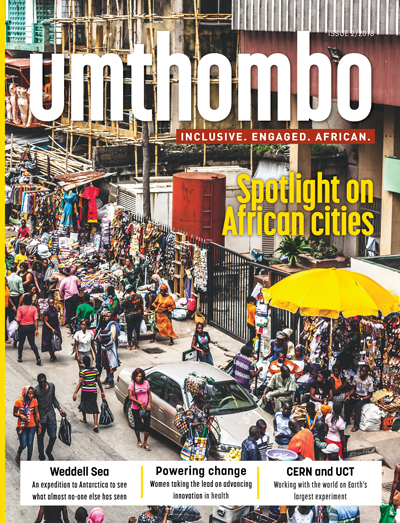 This story was published in the second issue of Umthombo, a magazine featuring research stories from across the University of Cape Town.
This story was published in the second issue of Umthombo, a magazine featuring research stories from across the University of Cape Town. Umthombo is the isiXhosa word for a natural spring of water or fountain. The most notable features of a fountain are its natural occurrence and limitlessness. Umthombo as a name positions the University of Cape Town, and this publication in particular, as a non-depletable well of knowledge.
Read the complete second issue online or subscribe and receive new issues in your inbox every few months.
 This work is licensed under a Creative Commons Attribution-NoDerivatives 4.0 International License.
This work is licensed under a Creative Commons Attribution-NoDerivatives 4.0 International License.
Please view the republishing articles page for more information.
Research & innovation
